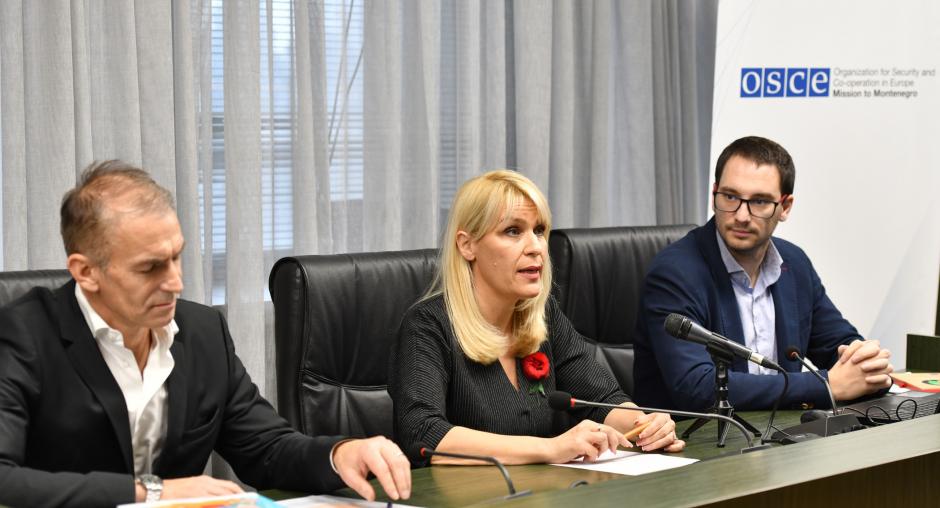OSCE Mission and Agency for Electronic Media publish Opinion Poll: Media Literacy – Children, Parents and the Media in Montenegro

In responding to the survey, every second parent agrees that their children find it challenging to control how much time they spend in front of a screen. Parents largely believe that the time they spend accessing available content, especially through television and mobile devices, has a negative impact on their mental health and development. Content of children programs often promote gender inequality and promotes stereotypes. Almost every child surveyed owns a mobile phone. In the past 12 months, both children and parents say that they have not visited the theatre, but 36.9% of surveyed children read printed or electronic books unlike 15.5% of their parents.
These are some of the concluding findings of an opinion poll Media Literacy – Children, Parents and the Media in Montenegro, conducted from August until November 2022. It was commissioned by the OSCE Mission to Montenegro for the Agency for Electronic Media, and conducted by DeFacto Agency, on a sample of 1,050 parents and 675 children from nine to 17 years of age.
Slaven Živković, executive director of DeFacto Agency, said that research shows that the amount of time both parents and children spend in front of electronic devices is increasing. “During weekdays, on average, children spend up to nine hours in front of the TV, mobile phone, tablet or computer/laptop. On weekends even more. Additionally, the number of parents who think that their children do not have good balance between the time they spend on the screen and the time they devote to other things is growing. Nevertheless, both parents and children mostly think that digital devices play a positive role in their lives. In addition, the vast majority of children still say that they regularly read books and visit libraries, which, even if it is not true, indicates that they consider such behaviour desirable,” said Živković.
“Media literacy is a concept that helps us to learn how to observe media messages more critically and to distinguish between factual and fictional content more easily. The emergence of social media and online platforms changed the way we communicate,” said Evan Eberle, the Mission’s Media Programme Manager. He added that media literacy is in its early stages in Montenegro, welcoming the decision by the National Council for Education to approve a program for “Media Literacy” as a subject for elementary schools. “The research recognized the need for additional education for children when it comes to media literacy. Recognizing its importance, the Mission together with the Agency for Electronic Media organizes and supports a series of activities to foster media literacy and professional reporting,” said Eberle, encouraging parents to understand the media content their children follow and guide them through their process of becoming media literate.
Elvira K. Ceković from the Agency for Electronic Media stated that since 2018, the Agency has implemented the media literacy campaign “Let’s Choose What We Watch”. According to her, the results of the research presented today show whether and how children and parents have changed their habits. “The research results should serve as a basis for planning future activities aimed at the development of media literacy in Montenegro, not only for the Agency, but also for many other institutions in the field of culture and education. The responsibility of the family in this process is inevitable and crucial, so the Agency will do everything to make the results of this research available to all citizens, with an invitation to join the launched media literacy campaign,” said Ceković.
In 2022 together with the Agency, the Mission organized and supported a series of activities and events to mark Media Literacy Days. Among those, the Mission and Agency distributed a Media and Digital Literacy Booklet to students, parents and to schools in Montenegro. Based on this publication, a video was produced to raise awareness on media literacy and protect children from harmful media content. A regional conference on Media and Digital Literacy gathered communication and media specialists who discussed the importance of media and digital literacy, algorithms, and fact checking.
The Mission will continue to make media and digital literacy one of their priorities in 2023.
